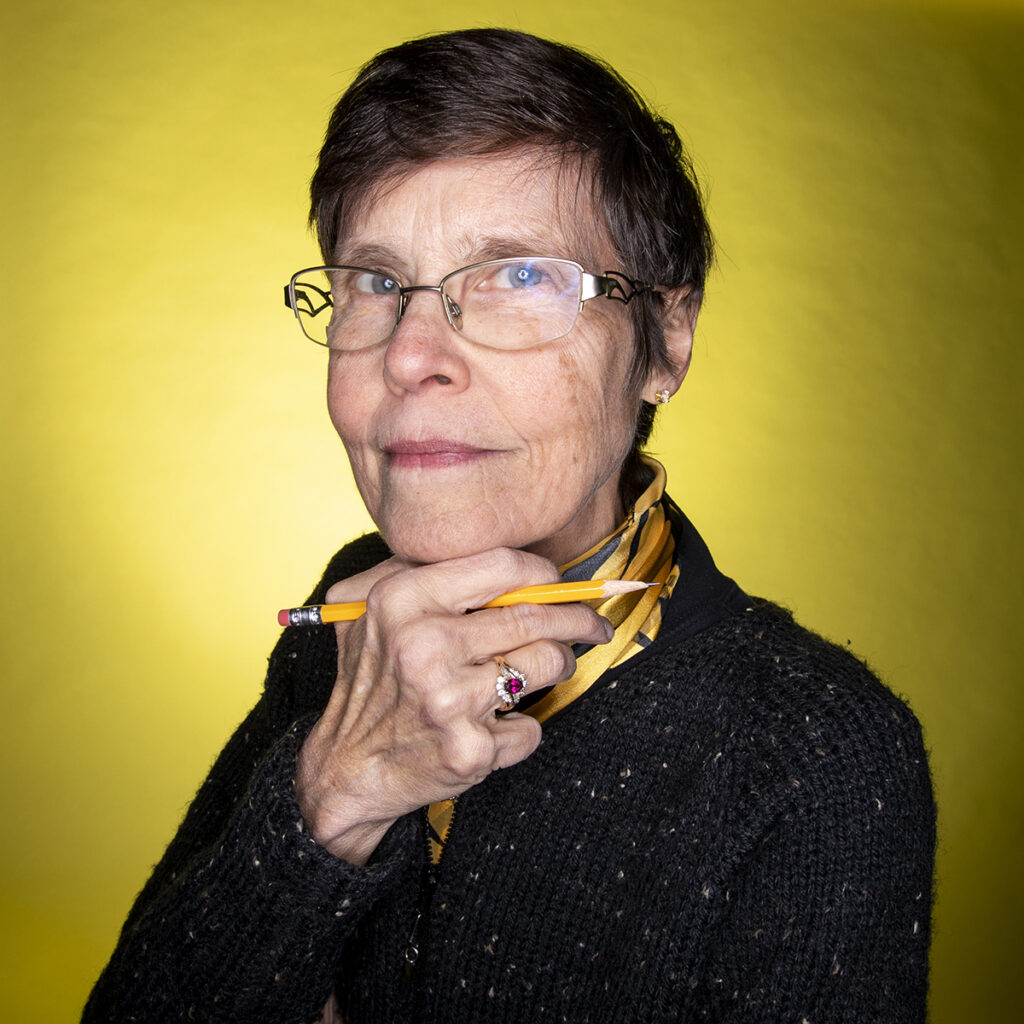Published on Dec. 12, 2019

Deanna Sharpe received the Win Horner Award for Innovative Writing Intensive Teaching this summer. Horner was a nationally known and respected pioneer in “writing across the curriculum.” Photo by Michael Cali
Walking through campus, it might be easy to miss the building tucked away behind Memorial Union. But up the stairs of Stanley Hall, you’ll come across a small office with a red brick wall reading ‘Personal Financial Planning’ in glittering gold letters. This is where Dr. Deanna Sharpe works.
This summer, Sharpe received the Win Horner Award for Innovative Writing Intensive Teaching. She teaches the writing intensive course, Assessing the American Dream, and her passion for writing is palpable.
“I have recognized the importance of writing as a way of not only disciplining our thinking, but also coming to know what we think,” Sharpe says. “I’m having to think deeply about the why, what’s underlying my thoughts, are there other ways of seeing things?”
Sharpe attended Missouri State University as an undergraduate, where she experimented with different majors before discovering a love for microeconomics. She completed a comprehensive major in economics and a minor in religious studies, combining an analytical data-driven economic perspective with people-focused quality of life considerations.
“I had, in effect, one foot in a highly quantitative world, understanding people’s motivations and the factors that play into the shaping of one’s life from that material side,” Sharpe says. “But I also had another foot in the qualitative side. Why do we pursue the things we pursue, and how we are interwoven with other people?”
As a graduate student at Iowa State University, she discovered a program focused on family and consumer economics. Now, at Mizzou, Sharpe focuses on people and the consumer side of things rather than the business and revenue side.
“We [Personal Finance Department faculty] are more interested in what’s going to benefit the consumer, recognizing that consumer spending is still what drives the economy,” Sharpe says. “I also jokingly, yet seriously, say that we are the economics and finance that really matters.”
Sharpe’s work with her class is similar to her enthusiasm for economics. She hopes to help her students think more critically about the ways that economic and social issues influence financial decision-making for the future clients that they will serve through the use of thought-provoking questions, writing and in-class discussions.
“As I tell students in my class, never am I ever about getting you to change your mind,” Sharpe says. “I want you to come to know your mind.”
A writing intensive course requires 20 total pages of writing, which can be achieved through small in-class writing assignments, such as those assigned by Sharpe to stimulate discussion, and longer assignments, such as an extensive, 13-page final paper covering the main themes of her class.
The University of Missouri has more than 350 writing intensive classes. Amy Lannin, director of the MU Campus Writing Program, is always hoping to see more writing in courses across and within disciplines.
“In the overall confidence and development of using writing effectively, we need it to become a routine practice in our day-to-day lives,” Lannin says.
Lannin sees Sharpe’s course, and many others, as important to the growth of critical thinking.
“Her passion for students and their learning, and the excitement of how she is engaged with them — wow! If we could only bottle and sell it,” Lannin says. “I think we could all benefit from that energy and passion.”
Sharpe’s passion for her students’ learning shows through in her dedication to her class. She combines complex concepts of economics, social issues, and quality of life questions with writing and always hopes to help a new batch of students find the same passion she has.
“In my own life, I have found it’s when I write that I’m really challenged to think deeply about something,” Sharpe says. “Writing allows depth of self reflection that really marks what I call true education.”